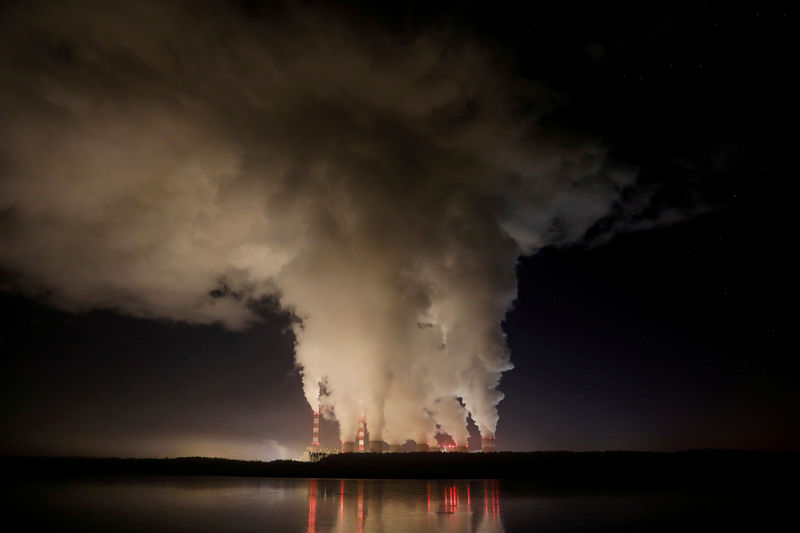By Nina Chestney
LONDON (Reuters) - Four in five coal plants in the European Union are unprofitable and utilities could face losses of nearly 6.6 billion euros ($7.3 billion) this year, a report by think tank the Carbon Tracker Initiative said on Thursday.
Lower costs for renewable energy and cheaper natural gas prices are increasingly competitive versus coal in power generation.
More expensive technology will also need to be installed on many existing coal plants to meet stricter EU air quality standards from 2021 and rising carbon permit prices could increase costs too, the report said.
Several EU countries have announced plans to phase out coal completely over time to comply with international emissions reduction targets. But some are still reliant on coal for the majority of their power generation, such as Poland.
Many coal plant operators say coal will be needed for decades to provide stable energy supplies because renewable energy is intermittent.
Carbon Tracker analysed the operating economics of every coal plant in the EU.
It found that hard coal generation, which has the highest carbon content, had fallen 39% this year from a year earlier.
Some 84% of lignite generation, which also has a high carbon content, and 76% of hard coal generation, is unprofitable, resulting in losses of 3.54 billion and 3.03 billion euros respectively.
Across the EU, 79% of coal plants are running at a loss.
"EU coal generators are haemorrhaging cash because they cannot compete with cheap renewables and gas and this will only get worse. Policymakers and investors should prepare to phase out coal by 2030 at the latest," said Carbon Tracker's Matt Gray, co-author of the report.
German utility RWE faces the biggest losses this year of 975 million euros, which is 6% of its market capitalisation, according to the report.
Central European energy group EPH, which has assets mainly in Germany and the Czech Republic, could lose 613 million euros, and PPC in Greece could lose 596 million euros, it said.

Coal plants that will continue to turn a profit include those in Poland, which receive quite high subsidies, efficient units in Germany and the Netherlands and some plants in Italy, the Czech Republic and Slovenia, which benefit from high wholesale power prices, the report said.